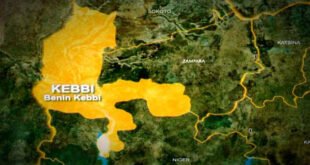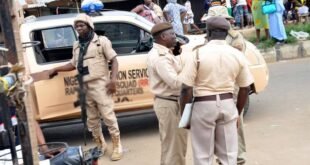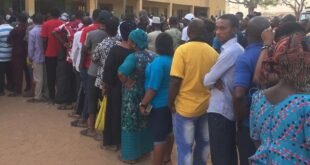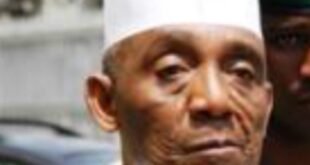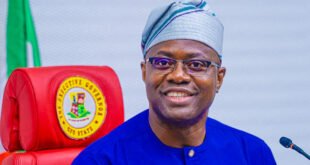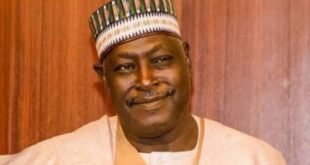Bangladesh has announced a curfew and the use of military force after police failed to quell days of deadly unrest that spread across the country.
This week’s clashes between student protesters and police have left at least 105 people dead, according to hospital casualty counts reported by AFP news agency, and pose a major challenge to the autocratic government of Prime Minister Sheikh Hasina, who has been in power for 15 years.
Local police have not yet released the death toll.
“The government has decided to impose a curfew and deploy the army to help the civil authorities,” Mrs Hasina’s spokesman, Nayeemul Islam Khan, told AFP.
He added that the curfew will come into effect immediately.
Police in the capital Dhaka had earlier taken the drastic step of banning all public gatherings for the day, the first time since the protests began, in a bid to prevent further violence.
“We have banned all public gatherings, processions and gatherings in Dhaka today,” police chief Habibur Rahman told AFP, adding that the decision was necessary to ensure “public safety”.
That, however, did not prevent another round of clashes between police and protesters in the vast megacity of 20 million people, despite an Internet shutdown aimed at hindering the organization of demonstrations.
The protests initially erupted over student anger over quotas that reserved 30 percent of government jobs for the families of those who fought for independence from Pakistan.
The unrest has been fueled by high unemployment among young people, who make up about a fifth of the population of 170 million.
Some analysts argue that the violence is now also being caused by broader economic problems, such as high inflation and dwindling foreign exchange reserves.
“Our protest will continue,” Sarwar Tushar, who joined a march in the capital and suffered minor injuries when the march was violently dispersed by police, told AFP.
“We want Sheikh Hasina’s immediate resignation. The government is responsible for the killings.”

Student protesters stormed a prison in the central Bangladesh district of Narsingdi and freed inmates before setting the facility on fire, a police officer who spoke on condition of anonymity told AFP.
“I don’t know the number of detainees, but we’re talking about hundreds,” he added.
● Dozens dead due to police shooting
At least 52 people were killed in the capital on Friday, according to a list compiled by the Dhaka Medical College Hospital and seen by AFP news agency.
According to descriptions given to AFP by hospital staff, police arson has caused more than half of the deaths reported so far this week.
UN human rights chief Volker Turk said the attacks on student protesters were “shocking and unacceptable”.
“There must be impartial, swift and comprehensive investigations into these attacks and those responsible must be held to account,” he said in a statement.
Earlier, the capital’s police force said that protesters had set fire to, vandalized and carried out “destructive activities” on several police and government offices on Thursday.
Among them was the Dhaka headquarters of state broadcaster Bangladesh Television, which was taken offline after hundreds of angry students stormed the headquarters and set fire to a building.
Dhaka Metropolitan Police spokesman Faruk Hossain told AFP that officers arrested Ruhul Kabir Rizvi Ahmed, a top leader of the main opposition Bangladesh Nationalist Party (BNP).

● ‘Symbol of a rigged system’
This month, almost daily marches have called for an end to a quota system that reserves more than half of civil service posts for specific groups, including the children of veterans of the country’s 1971 liberation war against Pakistan.
Critics say the program favors the children of pro-government groups that support Ms. Hasina, 76, who has ruled the country since 2009 and won her fourth consecutive election in January after a vote with no real opposition.
Ms Hasina’s government has been accused by rights groups of abusing state institutions to consolidate power and suppress dissent, including through the extrajudicial killings of opposition activists.
This week his administration ordered the indefinite closure of schools and universities as police stepped up efforts to bring the deteriorating law and order situation under control.
“This is an eruption of latent discontent among a young population, accumulated over the years,” Ali Riaz, a politics professor at Illinois State University, told AFP.
“Work quotas have become the symbol of a system rigged and built against them by the regime.”
AFP
The post Bangladesh imposes nationwide curfew as deadly protests surge at government workplaces appeared first on TheConclaveNg.
 JamzNG Latest News, Gist, Entertainment in Nigeria
JamzNG Latest News, Gist, Entertainment in Nigeria
